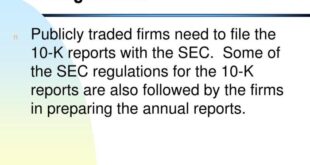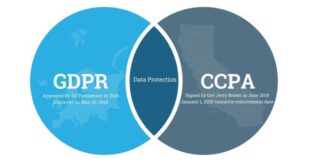Securities lawyer knowledgeable in SEC regulations and insider trading laws – In the intricate world of securities, expert legal counsel is essential to navigate the complexities of SEC regulations and insider trading laws. Our knowledgeable securities lawyer possesses a deep understanding of these intricate legal landscapes, empowering you to make informed decisions and mitigate risks.
With a comprehensive grasp of SEC regulations, our lawyer deciphers their impact on securities transactions, unraveling common pitfalls and outlining potential consequences. We delve into the nuances of insider trading, defining its legal implications and identifying restricted information to ensure ethical and compliant practices.
Expertise in SEC Regulations
Navigating the complex landscape of SEC regulations is crucial for ensuring compliance and mitigating risks in securities transactions. Our firm possesses a deep understanding of these regulations and their implications.
The SEC, as the primary regulator of the securities industry, enforces a comprehensive set of rules governing the issuance, trading, and reporting of securities. These regulations aim to protect investors, maintain fair and orderly markets, and prevent fraudulent practices.
Common SEC Violations
- Insider Trading:Trading on material, non-public information about a company.
- Market Manipulation:Artificially influencing the price or supply/demand of a security.
- Registration Violations:Failure to register securities offerings or brokers/dealers.
- Disclosure Violations:Misleading or incomplete disclosures in financial statements or other SEC filings.
- Anti-Money Laundering Violations:Failing to implement adequate measures to prevent money laundering through securities transactions.
Consequences of SEC Violations
Violations of SEC regulations can result in severe consequences, including:
- Civil penalties and fines
- Injunctions and cease-and-desist orders
- Criminal prosecution
- Loss of licenses or registration
- Reputational damage
Insider Trading Laws
Insider trading involves the illegal use of non-public, material information by individuals with access to it to gain an unfair advantage in the securities market. It undermines market integrity and investor confidence.
Insider information refers to any non-public information about a company that could significantly affect its stock price. It can include financial results, mergers, acquisitions, and regulatory developments.
Types of Insider Information
- Material Non-Public Information (MNPI):Information that a reasonable investor would consider important in making investment decisions.
- Confidential Information:Information obtained through a fiduciary relationship, such as a corporate insider or an investment banker.
- Tipped Information:MNPI that is passed on to someone who is not an insider but is expected to keep it confidential.
Restrictions on Insider Information Use, Securities lawyer knowledgeable in SEC regulations and insider trading laws
- Insiders are prohibited from trading on MNPI.
- Insiders must disclose MNPI to the company and abstain from trading until it is publicly released.
- Outsiders who receive MNPI must not trade on it and must keep it confidential.
Penalties for Insider Trading
- Civil penalties: Fines, disgorgement of profits, and trading bans.
- Criminal penalties: Imprisonment, fines, and asset forfeiture.
Defenses to Insider Trading Charges
- Lack of Knowledge:The defendant did not know the information was MNPI.
- Independent Source:The defendant obtained the information from a source other than an insider.
- Public Domain:The information was already publicly available.
Compliance and Risk Management

In the dynamic and highly regulated securities industry, compliance and risk management play a pivotal role in safeguarding the integrity of markets and protecting investors. Establishing a robust compliance program is essential for organizations to navigate the complexities of securities regulations and mitigate potential risks.
Developing and Implementing Compliance Programs
An effective compliance program should be tailored to the specific needs and operations of an organization. It involves:
- Identifying and assessing potential risks
- Establishing clear policies and procedures
- Training and educating employees
- Monitoring and auditing compliance
- Responding to violations promptly and appropriately
By implementing a comprehensive compliance program, organizations can proactively address potential violations, minimize legal and reputational risks, and maintain investor confidence.
Risk Assessment and Mitigation Strategies
Risk assessment is a crucial step in developing an effective compliance program. Organizations should identify and evaluate potential risks associated with their activities, such as insider trading, market manipulation, and conflicts of interest. Based on this assessment, appropriate mitigation strategies can be implemented to minimize the likelihood and impact of such risks.These
strategies may include:
- Establishing clear policies and procedures
- Conducting due diligence on clients and counterparties
- Implementing robust internal controls
- Providing ongoing training and education to employees
Role of Legal Counsel in Compliance and Risk Management
Legal counsel plays a vital role in advising clients on compliance and risk management matters. They provide guidance on developing and implementing compliance programs, interpreting securities regulations, and navigating regulatory investigations.Legal counsel can assist organizations in:
- Identifying and assessing potential risks
- Developing and implementing compliance policies and procedures
- Conducting internal investigations and responding to regulatory inquiries
- Representing clients in enforcement actions and litigation
By leveraging the expertise of legal counsel, organizations can proactively manage compliance risks, protect their reputation, and maintain investor confidence.
Due Diligence and Disclosure: Securities Lawyer Knowledgeable In SEC Regulations And Insider Trading Laws
Due diligence and disclosure are critical aspects of securities transactions to ensure investor protection and market integrity. Securities lawyers play a vital role in guiding clients through these processes, ensuring compliance with legal requirements and mitigating risks.
Due Diligence
Due diligence involves the thorough investigation and analysis of a company or security before making an investment or entering into a transaction. Legal requirements for due diligence include:* Review of Financial Statements:Examining the company’s financial health and performance.
Examination of Legal Documents
Analyzing contracts, agreements, and regulatory filings.
Assessment of Management and Operations
Evaluating the company’s leadership, business strategy, and operational capabilities.
Disclosure
Accurate and timely disclosure of material information is essential for investors to make informed decisions. Material information includes any facts or events that could reasonably affect the value or risk of a security. Legal requirements for disclosure include:* Continuous Disclosure:Public companies must disclose material information as it becomes available.
Periodic Reporting
Companies must file periodic reports with the SEC, such as quarterly and annual reports, containing detailed financial and operational information.
Event-Driven Disclosure
Companies must disclose material events promptly, such as mergers, acquisitions, or changes in financial performance.
Drafting and Reviewing Disclosure Documents
Securities lawyers assist in drafting and reviewing disclosure documents, such as prospectuses, offering circulars, and periodic reports. These documents must:* Be Accurate and Complete:Disclose all material information without misleading or omitting any facts.
Comply with Legal Requirements
Adhere to the disclosure requirements established by the SEC and other regulatory bodies.
Be Clear and Concise
Present information in a way that is easily understood by investors.
Litigation and Dispute Resolution
Securities litigation encompasses a wide range of legal disputes involving securities laws, regulations, and investments. These disputes can arise from various sources, including shareholder lawsuits, regulatory enforcement actions, and disputes between market participants.
Types of Securities Litigation
Securities litigation covers a broad spectrum of cases, including:
- Shareholder derivative suits: These lawsuits are filed by shareholders on behalf of a company to recover damages or redress corporate misconduct.
- Class action lawsuits: These suits are brought by a group of investors who have suffered similar losses due to alleged securities violations.
- Securities fraud lawsuits: These lawsuits allege that investors were misled or deceived by false or misleading statements or omissions of material information.
- Insider trading lawsuits: These lawsuits involve allegations that individuals traded on non-public information to profit illegally.
- Regulatory enforcement actions: These actions are brought by government agencies, such as the SEC, to enforce securities laws and regulations.
Legal Strategies
Securities litigation often involves complex legal strategies and arguments. Plaintiffs’ attorneys typically seek to establish liability based on violations of federal securities laws, such as the Securities Act of 1933 and the Securities Exchange Act of 1934. Defendants, on the other hand, may assert defenses such as the statute of limitations, lack of standing, or the absence of scienter (intent to deceive).
Role of Expert Witnesses
Expert witnesses play a crucial role in securities litigation. They provide specialized knowledge and analysis to assist the court in understanding complex financial and economic issues. Experts may testify on topics such as market practices, valuation methodologies, and the interpretation of financial statements.
Negotiating and Settling Securities Disputes
Securities disputes can be resolved through negotiation and settlement. Settlement agreements typically involve the payment of monetary damages or other remedies. The decision to settle or litigate depends on various factors, including the strength of the case, the potential costs and benefits of litigation, and the parties’ willingness to compromise.
Concluding Remarks

Our legal guidance extends beyond mere compliance. We provide tailored advice on developing robust compliance programs, empowering you to proactively prevent securities violations. Through meticulous risk assessments and mitigation strategies, we safeguard your interests and maintain regulatory adherence.
In the event of litigation or disputes, our lawyer serves as a formidable advocate, skillfully navigating legal complexities and leveraging expert testimony to protect your rights. With a keen eye for detail and a commitment to excellence, we strive to resolve disputes efficiently and effectively.
Q&A
What are the key responsibilities of a securities lawyer?
Securities lawyers advise clients on compliance with SEC regulations, including insider trading laws, and represent them in litigation or dispute resolution.
What are the common pitfalls to avoid in securities transactions?
Failing to conduct thorough due diligence, misinterpreting SEC regulations, and engaging in insider trading are common pitfalls that can lead to legal consequences.
How can I mitigate risks associated with insider trading?
Implementing robust compliance programs, conducting regular risk assessments, and educating employees about insider trading laws can help mitigate risks.
 Nenroll Nenroll News
Nenroll Nenroll News













